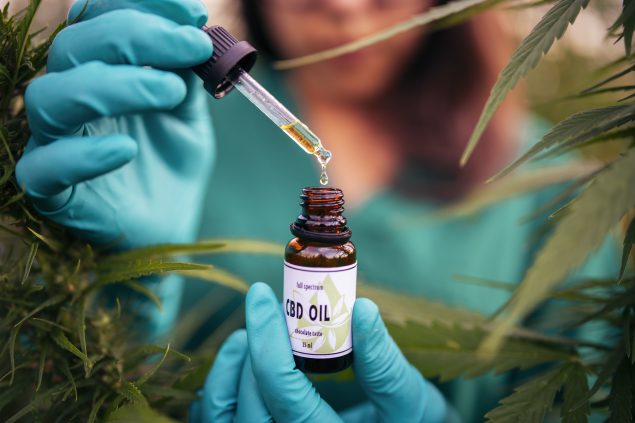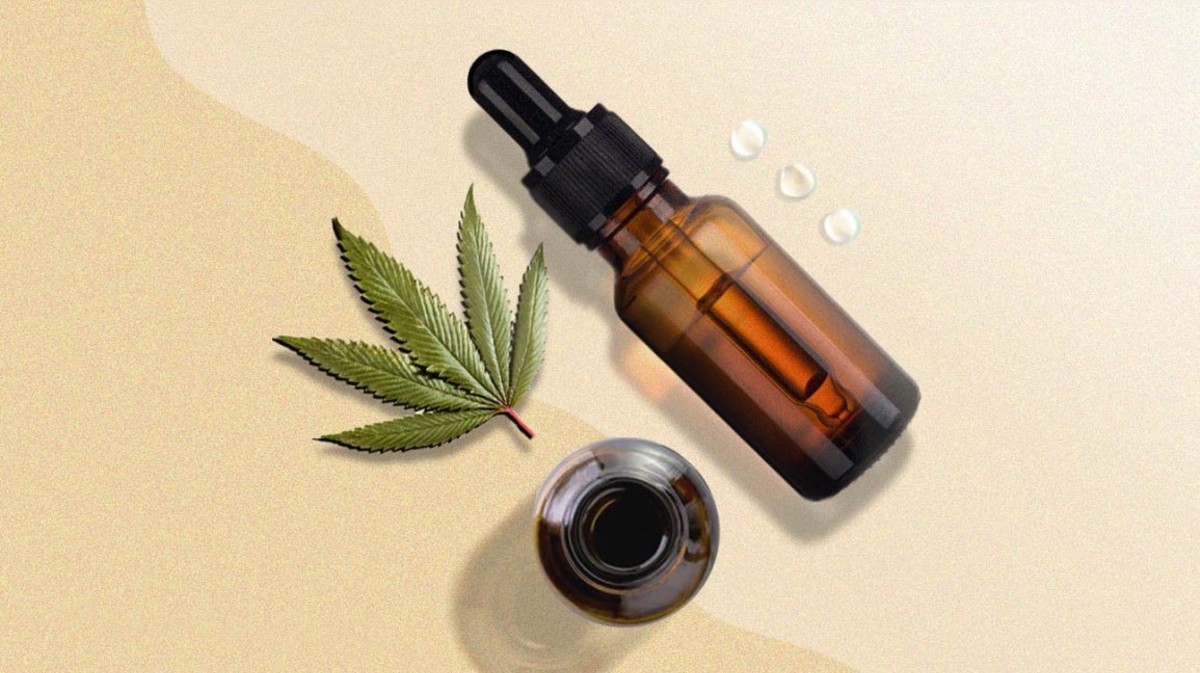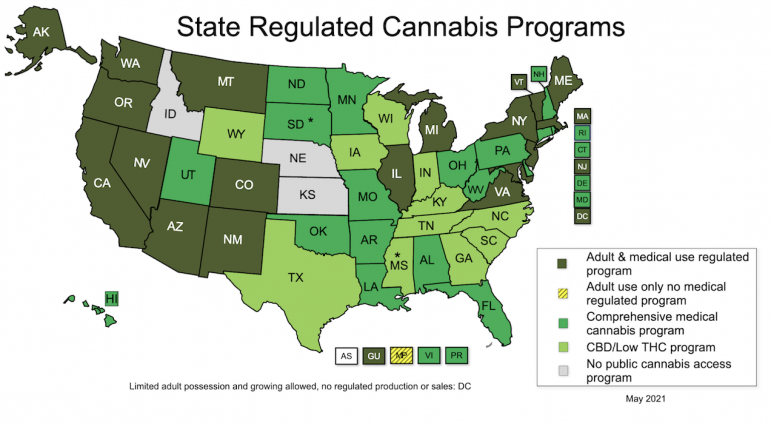
There are over 100 cannabinoids in cannabis, but most people know only the THC and CBD. There are many cannabinoids that provide special benefits and effect, such as cannabidiolic, or CBDA.
This is a type cannabinoid from the hemp plant that is non-intoxicating but has no psychoactive qualities. It has anti-inflammatory, anti-nausea, and anti-seizure properties.
It is also a strong immune modulator and anti-anxiety agent. It inhibits the COX-2 enzyme that causes inflammation, a common cause of pain and disease in animals. It is also a potent antioxidant and is believed to be able to kill cancer cells without affecting healthy ones.
Carboxylation is a process that allows cannabinoids to stabilize into their final forms. The heat from a cannabis plant causes the acidic carboxylic groups to be destroyed and the CBD form to become more stable.

There has been much research done on the plant's cannabinoids. However, there is very little information about cannabidiolic. Scientists are hoping to learn more about this compound and how it works.
The endocannabinoid, which regulates most of the body functions, has been suggested to be based on cannabidiol or other cannabinoid compound. The endocannabinoid system plays an important role in maintaining homeostasis and is essential for stress recovery, immune function, and more.
Research is now looking at new ways cannabinoids can be used for therapeutic purposes. One such approach is the study of cannabidiolic acid, which has been linked to a variety of positive health effects in animals.
This is especially true of dogs, who are prone to arthritis and other joint problems. CBD oil for dogs can be used to treat the inflammation and pain associated with canine joint diseases.
CBD for dogs is recommended as a method to treat conditions such as arthritis, epileptic attacks, extreme anxiety and joint inflammation. It has also been proven to be beneficial in flea control and immune function.

Cannabidiolic acids cbda are an important part of the hemp plants. They decarboxylate into CBD, which can have many positive effects on dogs. It has been proven that cannabidiolic, or cbda, in raw hemp plants has a variety of anti-inflammatory and immunomodulatory properties.
This cannabidiolic acids cbda is particularly effective at controlling nausea and vomiting in dogs. CBDa might be an anti-vomiting agent in these situations by stimulating the 5-HT1A receptors in the gastrointestinal system.
Cannabidiolic acids cbda might be able prevent nausea from vomiting in humans due to their pharmacodynamic similarity to cannabinoids. In fact, CBDa and CBD can bind to the same receptors in the brain and have similar effects.
Following intraperitoneal administration to mice, we examined the pharmacokinetics and pharmacokinetics in cannabidiolic aci cbda (THC, THC, THCA) and 7-cooh cbd. Interestingly, all of the cannabinoids showed significant anticonvulsant activity in the Scn1aRX/+ mouse model of Dravet syndrome.
FAQ
What's the future for the CBD industry?
The future looks bright for CBD. It's easy to see why so many people are jumping on board with this sector. With CBD products making up over $1Billion worldwide, it's easy for people to see why this market has grown exponentially.
Statista predicts that global sales of cannabidiol in 2019 will reach $22.4 million. This is an almost 200% increase from 2018!
The CBD market is also forecast to grow at 22.5% compound annual growth rate, which would result in nearly $6.8B in revenue by 2022.
This is great news not only for existing businesses but also for companies looking to get into the sector. However, the CBD market is still in its infancy. This means that there will be challenges.
What are some common blunders that companies make when they venture into the US cannabinoid markets?
First, you need to be familiar with the regulations regarding cannabis products. This could cause you to have to modify the formulation of your product.
The second mistake is not knowing how to properly label your product. You need to know if your product contains THC, CBD, or both.
Thirdly, you should understand how to package your product correctly. If your product contains THC, you need to ensure it is packed in child-resistant containers.
If your product does NOT contain THC you should still adhere to all packaging laws. There is a lot of states where cannabidiol, or CBD (CBD), is legal.
Keep track of any recalls regarding your products. It is important to inform customers as soon as possible if there is an issue with your product.
Are there any studies that CBD can reduce anxiety?
CBD oil is an effective treatment for anxiety. This happens because it interacts to certain brain receptors called CB1 (and CB2), respectively. The mood and stress responses are controlled by the endocannabinoid system.
CB1 receptor activation occurs when our bodies feel anxious. This receptor activates and sends signals to amygdala which is responsible for emotional processing.
When the CB1 receptor gets blocked, the amygdala can't process emotions. As a result, people who take CBD experience fewer negative feelings.
In 2017, a study showed that CBD can reduce anxiety in people with social phobia. Another study found that CBD reduced symptoms of PTSD.
A 2018 review concluded CBD's anxiolytic qualities could be helpful in treating generalized anxiety disorder.
Another study suggested that CBD may also help to reduce panic attacks.
However, multiple studies have shown that CBD does increase anxiety in mice.
The discrepancy found between the animal results and human data might be due to differences of how CBD affects humans and animals.
CBD has not been shown to be safe long-term. But, experts are unanimous in their belief that CBD is safe when used according to directions.
Is the CBD industry saturated?
CBD is growing at a rate of more than 25% per year. This growth will continue at least five years. In fact, the industry is projected to grow from $2 billion today to $5 billion by 2020.
Canndoc Ltd and GW Pharmaceuticals are the dominant players in the CBD market. Both companies focus on developing high-quality pharmaceutical-grade products. But they have not been particularly successful. Both are struggling to gain traction on the market.
Cannabidiol (CBD), an extract from cannabis, contains less than 0.3% THC. It does not have any psychoactive properties. It is used for treating epilepsy and other medical conditions. It is also commonly used as a dietary supplement.
There are many kinds of CBD products. Some are made using whole plant extracts, while others use isolated cannabinoids such as CBD.
All of these products share one thing: They contain low levels THC.
They are thus legal under US federal legislation. You will still need to follow local laws if you are selling CBD products. Always check your state's laws regarding CBD products.
Some states also make CBD products illegal. These are California, Colorado. Florida. Mississippi. Missouri. New York. North Carolina. Ohio. Oklahoma. Oregon. Rhode Island. South Dakota. Texas. Utah. Virginia. Washington.
If you live in one of these states, then you will probably want to avoid making CBD products.
What conditions can CBD be used for?
Any treatment must have an impact on the patient's condition. A doctor must give a prescription for cannabis oil to be used in medicine. It is also illegal to use cannabis products if you do not have a prescription from a medical professional.
A prescription is not necessary if cannabis oil is being used as part of a healthy lifestyle. Talk to your doctor first to ensure that you are safe to use cannabis oil.
The cannabis oil can be made from whole plant extracts (THC and CBN), or it can be isolated compounds called marijuanaoids (CBN and CBN). There are many types of cannabinoids in cannabis oils, including cannabidiol and tetrahydrocannabinol.
These components interact to receptors throughout your body to create effects like pain relief, stress decrease, and anti-inflammatory as well as antioxidant properties.
Statistics
- The inhibition of FAAH is predicted to lead to an increase in brain and plasma concentrations of AEA, which acts as a partial agonist at CB1R and CB2R, thereby increasing endocannabinoid tone [92, 110]. (ncbi.nlm.nih.gov)
- The use of these products is likely to become even more widespread if the World Health Organization's recommendation that CBD no longer is scheduled in the international drug control conventions is adopted by the United Nations member states [201]. (ncbi.nlm.nih.gov)
- A recent study [161] also found that in vitro CBD treatment (i.e., ≤ 2 h exposure to 10 μM) induced ~40% vasorelaxation in isolated (pre-constricted) (ncbi.nlm.nih.gov)
- CBD seems unlikely to directly influence sleep in healthy humans [115] (and maybe “sleep-promoting” in those with certain comorbid conditions) (ncbi.nlm.nih.gov)
- While the primary injury may not be treatable, interventions that attenuate secondary sequelae are likely to be of benefit [203].Only one study (ncbi.nlm.nih.gov)
External Links
How To
What are the major issues facing the CBD industry in general?
The current market for CBD-based products is expanding at a phenomenal rate. There are many hurdles businesses face when trying to enter the CBD market. These include lack of consumer awareness and high costs of entry, limited capital access, and regulatory uncertainty.
Many people don't know much about CBD or how it works. They are unable to make an informed decision about buying CBD products.
CBD companies heavily rely on word-of-mouth advertising. This is costly, as it requires advertising and the hiring of staff to promote their brand.
Another problem for new entrants to CBD is the high price of production. High prices are a major problem for CBD products because of the high cost of raw materials. For example, hemp needs to be grown in specific climates and soil types before it can be processed into CBD oil.
Growing enough hemp to make CBD oil takes around $1,000 per acre. This means that many small farmers cannot afford the cost of starting.
The lack of capital access is another obstacle new entrants to the CBD market face. Banks discourage many people from starting a business because of the stigma attached to this industry.
There is also regulatory uncertainty around the sale of CBD products. There are no guidelines for how CBD products should market.
Although some states have passed legislation restricting CBD product sales, this has not become a national policy.
Only Nevada and Maine have already legalized recreational cannabis.
Massachusetts and Michigan, however, are exploring similar options.
These changes could cause increased competition among CBD manufacturers.
These factors lead to many entrepreneurs choosing to work from their home instead of starting a physical company.